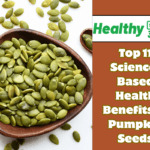13 Simple Ways to Stop Eating Lots of Sugar
1. Check food labels for hidden sugars
It’s essential to scrutinize food labels carefully for concealed sugars, as many packaged and processed foods contain added sugars that may not be immediately apparent. These hidden sugars can contribute to excess calorie intake, weight gain, and various health issues, including obesity, diabetes, and heart disease.
Reading food labels enables consumers to make informed choices about their dietary intake and prioritize foods with lower sugar content. However, identifying hidden sugars can be challenging, as they may appear under different names, such as sucrose, high-fructose corn syrup, dextrose, maltose, and cane sugar, among others.

2. Try to avoid sugary drinks
Avoiding sugary drinks is a prudent choice for maintaining overall health and well-being. These beverages, often laden with added sugars, contribute significantly to excess calorie intake and are associated with numerous adverse health effects, including obesity, type 2 diabetes, cardiovascular disease, and dental decay.
Sugary drinks encompass a wide range of beverages, including sodas, fruit juices, energy drinks, sports drinks, sweetened teas, and flavored milk. Despite their appealing taste and convenience, these beverages provide little to no nutritional value while delivering a high concentration of refined sugars.
Read Also:
Pregnancy: Signs, Symptoms, Overview, Health Tips You Should Know
3. Drink lots of water in place of sugary drinks
Substituting sugary drinks with ample water intake is a wise dietary choice that offers numerous health benefits. Water is essential for maintaining hydration, supporting bodily functions, and promoting overall well-being. By opting for water over sugary beverages, individuals can reduce their calorie intake, improve hydration, and support various aspects of health.
Water is calorie-free and contains no added sugars, making it an ideal choice for those seeking to manage their weight or reduce sugar consumption. Unlike sugary drinks, which can contribute excess calories and promote weight gain, water helps fill the stomach and promote satiety without adding extra energy to the diet.
4. Choose whole foods instead of processed snacks
Opting for whole foods over processed snacks is a strategic dietary decision that offers numerous advantages for health and nutrition. Whole foods, such as fruits, vegetables, whole grains, nuts, seeds, and lean proteins, are minimally processed and retain their natural nutrients, fiber, and phytochemicals, providing a plethora of benefits for overall well-being.
Whole foods are nutrient-dense, meaning they contain a wide array of essential vitamins, minerals, and antioxidants that are vital for supporting bodily functions and promoting optimal health. By choosing whole foods instead of processed snacks, individuals can ensure they are nourishing their bodies with wholesome nutrients that contribute to vitality and longevity.

5. Eating protein rich foods may help in reducing sugar cravings
Consuming protein-rich foods has been suggested as a potential strategy for reducing sugar cravings and promoting better dietary habits. Protein is a macronutrient that plays a crucial role in regulating appetite, promoting satiety, and stabilizing blood sugar levels. By including protein-rich foods in meals and snacks, individuals may experience reduced cravings for sugary foods and beverages.
Protein-rich foods, such as lean meats, poultry, fish, eggs, dairy products, legumes, nuts, and seeds, are digested more slowly than carbohydrates, leading to a gradual release of energy and a longer-lasting feeling of fullness. This can help prevent rapid fluctuations in blood sugar levels, which can trigger cravings for sugary snacks and beverages.
6. Choose natural or home made snacks such as nuts, seeds or vegetables
Opting for natural or homemade snacks like nuts, seeds, or vegetables is a wise dietary choice that offers numerous health benefits. These wholesome snacks are minimally processed and rich in nutrients, providing a convenient and satisfying way to curb hunger between meals.
Nuts and seeds are nutrient-dense foods packed with healthy fats, protein, fiber, vitamins, and minerals. They provide sustained energy and help keep blood sugar levels stable, making them an excellent choice for snacking. Additionally, nuts and seeds offer various health-promoting compounds such as antioxidants and phytochemicals, which support overall well-being.
Read Also:
7. Opt for protein rich breakfast like eggs
Choosing a protein-rich breakfast option such as eggs is a smart dietary decision that can set the tone for a healthy day ahead. Eggs are a nutritional powerhouse, packed with high-quality protein, essential vitamins, and minerals. Starting the day with a protein-rich meal like eggs can provide sustained energy, promote satiety, and help control appetite throughout the morning.
Eggs into breakfast can also support weight management goals by reducing the likelihood of overeating later in the day. Protein is known to increase feelings of fullness and satisfaction, which can help prevent snacking on unhealthy foods between meals.
8. Use natural sweeteners instead of refined sugar
Choosing natural sweeteners over refined sugar is a beneficial dietary choice that can have positive implications for overall health and well-being. Natural sweeteners, such as honey, maple syrup, agave nectar, and stevia, offer sweetness without the detrimental effects associated with refined sugar consumption.
Unlike refined sugar, which undergoes extensive processing and stripping of nutrients, natural sweeteners retain more of their original nutritional value. For example, honey and maple syrup contain trace amounts of vitamins, minerals, and antioxidants, which provide additional health benefits beyond simple sweetness.

9. Try to avoid desserts
Avoiding desserts can be a wise choice for promoting overall health and maintaining a balanced diet. While desserts are often indulgent and enjoyable, they are typically high in added sugars, unhealthy fats, and calories, which can contribute to weight gain, obesity, and various health issues.
By refraining from indulging in desserts regularly, individuals can reduce their intake of excess sugar and empty calories, which can negatively impact overall health and well-being. Excessive consumption of sugary desserts can lead to spikes in blood sugar levels, followed by crashes, which can leave individuals feeling tired, irritable, and lethargic.
10. Eat home cooked food
Opting for home-cooked meals is a proactive approach to controlling sugar intake and promoting overall health and well-being. When individuals prepare their own meals at home, they have greater control over the ingredients used, allowing them to avoid hidden sugars commonly found in processed and restaurant foods.
Home-cooked meals typically use whole, unprocessed ingredients, which are less likely to contain added sugars compared to pre-packaged or restaurant meals. By cooking from scratch, individuals can select wholesome ingredients such as fresh fruits and vegetables, lean proteins, whole grains, and healthy fats, which provide essential nutrients without the need for added sugars.
11. Pay attention to the amount of sugar added in foods
Being mindful of the quantity of sugar added to foods is crucial for maintaining a balanced and nutritious diet. Many processed and packaged foods contain hidden sugars, which can contribute to excessive calorie intake and negative health outcomes if consumed in excess. By paying close attention to food labels and ingredient lists, individuals can make informed choices about the products they consume and avoid unnecessary sugar consumption.
Monitoring sugar intake is particularly important for individuals who are trying to manage conditions such as obesity, diabetes, or cardiovascular disease. Excessive sugar consumption has been linked to an increased risk of these health conditions, making it essential to limit sugar intake and prioritize whole, unprocessed foods whenever possible.
Read Also:
Depression: Meaning, Signs And Symptoms
12. Quality sleep helps in reducing sugar cravings
Quality sleep plays a significant role in regulating various physiological processes, including appetite and hunger hormones. Lack of adequate sleep can disrupt the balance of hormones that regulate appetite, leading to increased cravings for sugary and high-calorie foods.
When individuals don’t get enough sleep, levels of the hunger hormone ghrelin increase, while levels of the satiety hormone leptin decrease. This hormonal imbalance can stimulate cravings for foods that provide quick energy, such as those high in sugar and refined carbohydrates.
13. Stress management is a major factor in reducing sugar cravings
Effectively managing stress plays a pivotal role in curbing sugar cravings and maintaining a balanced diet. When individuals experience stress, the body releases cortisol, a hormone that can trigger cravings for sugary and high-calorie foods as a way to cope with stress. This biological response is often referred to as “stress eating” or “emotional eating.”
Chronic stress can disrupt the body’s natural hunger and fullness cues, leading to overeating and cravings for comfort foods that are typically high in sugar and unhealthy fats. These foods provide temporary relief from stress but can ultimately contribute to weight gain and other adverse health outcomes if consumed regularly.
Read Also:
Way To Improve Your Mental Health And Become Best Version Of Yourself




